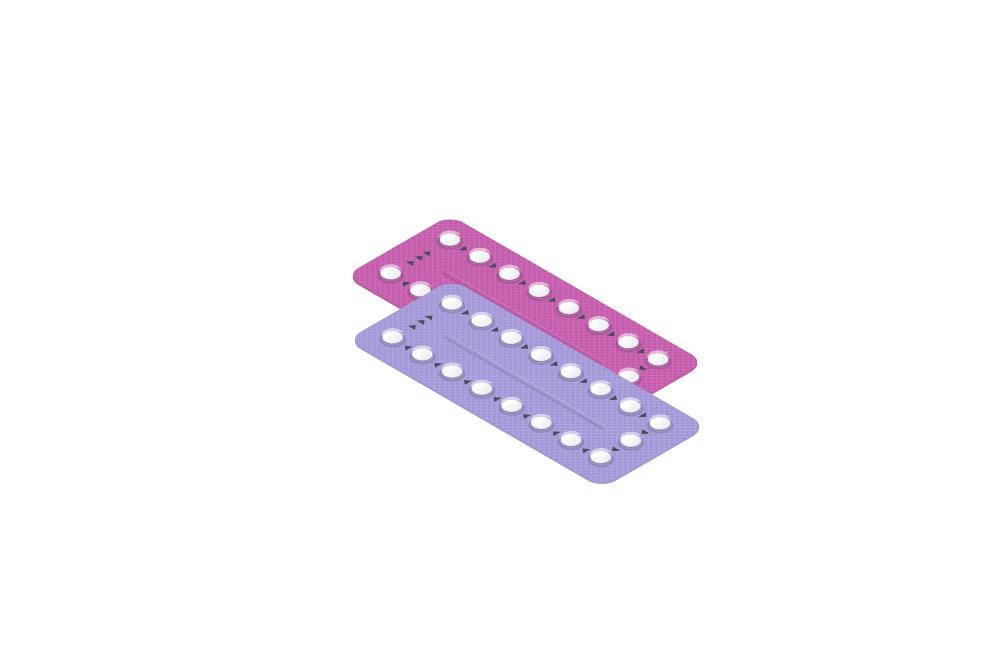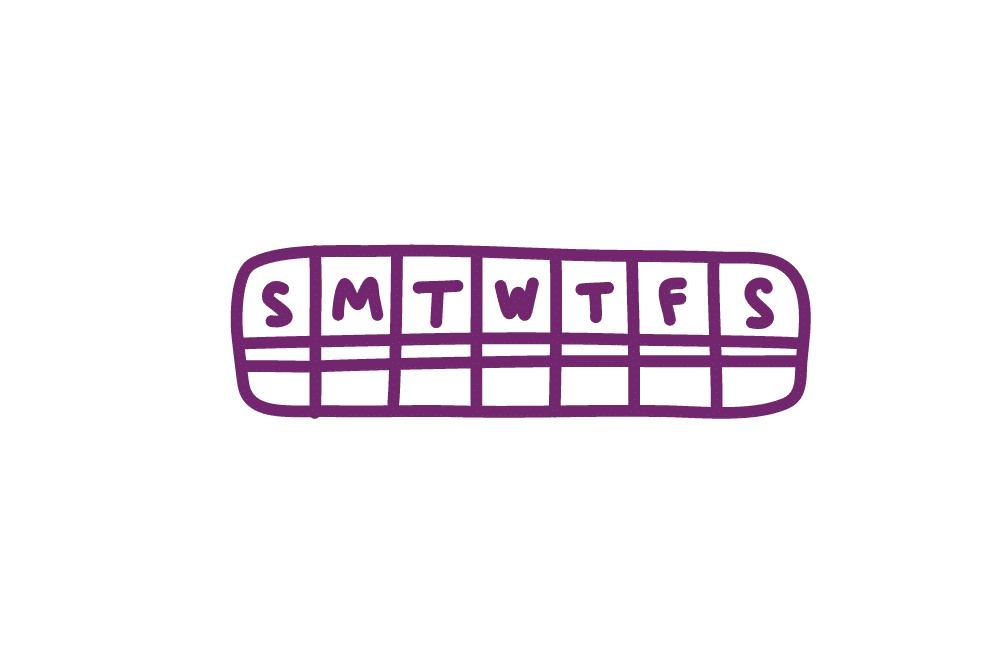Let’s face it – making the decision to start the pill can feel overwhelming. Questions may pop up, and that’s okay, because we’re here to help a sister out. Whether you’re new to birth control or considering a switch, we’ve got all the essential information you need right here. From understanding the basics of birth control pills to finding the right type for your body and lifestyle, we’ll walk you through each step.
Understanding How It Works: The Basics of Birth Control Pills
In a simple yet effective process, birth control pills work by regulating your body’s hormones to prevent pregnancy. Essentially, they stop your ovaries from releasing eggs, thicken the cervical mucus to make it harder for sperm to reach an egg, and alter the lining of your uterus to make it less hospitable for a fertilised egg. Together, these steps provide reliable contraception when you’re sexually active. It’s like your body’s natural way of saying, “Not today, pregnancy!”
- Regulating Hormones: Birth control pills contain synthetic versions of hormones that are naturally produced in your body – oestrogen and progestin. These hormones play key roles in your menstrual cycle.
- Preventing Ovulation: One of the main ways birth control pills work is by suppressing ovulation , which is when your ovaries release an egg each month. Without ovulation, there’s no egg for sperm to fertilise, so you can’t get pregnant.
- Thickening Cervical Mucus: Birth control pills also make the mucus in your cervix thicker. This mucus acts like a barrier, making it harder for sperm to swim through and reach an egg.
- Changing the Uterine Lining: As an extra precaution, birth control pills can also alter the lining of your uterus, making it less suitable for a fertilised egg to attach and grow.
By combining these effects, birth control pills provide a reliable way to prevent pregnancy when taken correctly. Understanding these basics helps you feel more confident and informed as you start your journey with the pill.
Types of Birth Control Pills

Combination Pills
Combination birth control pills contain two hormones, oestrogen and progestin. They come in different formulations:
- Monophasic Pills: Each combined oral contraceptive pill in the pack contains the same amount of hormones.
- Multiphasic Pills: Hormone levels vary throughout the pill pack, mimicking the natural hormonal fluctuations of a woman’s menstrual cycle.
- Extended-Cycle Pills: These allow women to have fewer periods by extending the time between periods or eliminating them altogether.
Progestin-Only Pills (Mini Pills)
Unlike combination pills, mini pills contain only progestin. They are suitable for women who cannot take oestrogen or prefer progestin-only options due to health reasons.
Phasic Pills
These hormone pills contain different amounts of hormones in each pill, usually changing every few days. Phasic pills may have two or three different phases within a pack.
Low-Dose Pills
These pills contain lower doses of oestrogen compared to traditional combination pills. They aim to reduce side effects while maintaining effectiveness.
Continuous-Dosing Pills
Also known as continuous-cycle or continuous-use pills, these are taken every day without a break. They can reduce the frequency of periods or eliminate them altogether.
Emergency Contraceptive Pills (ECPs)
Also called the “ morning-after pil l,” these pills contain higher doses of hormones compared to regular birth control pills. By taking one pill promptly after unprotected intercourse or contraceptive failure, they help to prevent pregnancy. Note that the morning-after pill is not the same as the abortion pill. Find out where to buy the morning after pill in Australia here.
Each type of birth control pill has its advantages and disadvantages, and the most suitable option varies depending on individual health needs and preferences. It’s essential to consult with a healthcare provider to determine the most appropriate type of birth control pill to keep you protected from pregnancy.
Consistency: Staying on Top for Effective Protection

- Same Time, Every Day: Imagine the pill as your daily ritual, like brushing your teeth or checking your phone for notifications. Taking it at the same time every day helps keep those hormone levels steady, which is essential for its effectiveness.
- Boosting Effectiveness: Consistency isn’t just about sticking to a routine – it’s about maximising the pill’s power to protect you against pregnancy. When you’re consistent in taking birth control pills, you’re giving those hormones the best chance to do their job and prevent ovulation.
So, why mess with a good thing? By making taking the pill a part of your daily routine, you’re not only ensuring birth control pill effectiveness but also taking control of your reproductive health. Stay consistent, stay protected – it’s as simple as that!
Factors to Consider Before Starting The Pill
Before diving into the world of birth control pills, it’s essential to lay down a solid foundation. Let’s explore what you need to consider before taking the plunge:
- Consultation with Healthcare Providers: First things first, have a chat with your healthcare provider. They’re your go-to experts who can provide personalised advice based on your medical history, lifestyle, and preferences. Together, you can discuss the best type of pill for you and address any concerns or questions you may have.
- **Understanding Potential Side Effects:**Like any medication, birth control pills come with potential side effects. It’s important to be aware of birth control side effects, from minor annoyances like headaches or nausea to more serious concerns like blood clots . Knowing what to expect empowers you to make informed decisions and seek help if needed.
- **Managing Concerns:**Feeling anxious or unsure? That’s totally normal! Whether it’s worries about remembering to take the pill every day or concerns about how it might affect your body, don’t hesitate to voice your thoughts. Your healthcare provider can offer reassurance, tips for managing side effects, or alternative contraceptive options if needed.

Safety of Birth Control Pills
Let’s shine a light on the safety of birth control pills, addressing common worries about birth control pill usage.
- Addressing Concerns: It’s natural to have concerns about the safety of any medication, and birth control pills are no exception. However, rest assured that extensive research and regulatory measures are in place to ensure their safety and efficacy.
- Regulation: Birth control pills are subject to strict regulation by health authorities to ensure their safety and effectiveness. Before they can be approved for use, they undergo rigorous testing to evaluate their safety profile, efficacy, and potential side effects.
- Factors Influencing Safety: It’s important to recognise that individual factors, such as medical history, lifestyle, and overall health, can influence the safety of birth control pills. That’s why it’s important to have open and honest discussions with your healthcare provider before starting or switching to a new contraceptive method.
How Long Can You Safely Take Birth Control Pills?
Let’s explore the duration of using birth control pills and considerations for long-term usage, along with potential alternatives:
- Safe Duration: Birth control pills are generally considered safe for long-term use for most women. Many people use them continuously for years without experiencing any adverse effects on their health.
- Considerations for Long-Term Usage: While birth control pills are safe for extended use, it’s essential to periodically reassess your contraceptive needs with your healthcare provider. They can evaluate any changes in your health status or lifestyle and determine if the pill remains the most suitable option for you.
- Potential Alternatives: If you’re considering long-term contraception but prefer alternatives to birth control pills, several options are available. These may include long-acting reversible contraceptives (LARCs) such as intrauterine devices (IUDs) or contraceptive implants, which offer effective and low-maintenance contraception for several years.
- Regular Check-ins: Regardless of the contraceptive method you choose, it’s essential to schedule regular check-ins with your healthcare provider. These appointments allow for ongoing monitoring of your reproductive health and provide an opportunity to discuss any concerns or preferences regarding your contraceptive regimen.
Choosing the Right Birth Control Pill
If you’re seeking help in choosing the right birth control pill for you, Youly is dedicated to reproductive health. With Youly, you can connect with healthcare providers and receive personalised guidance tailored to your needs and preferences.
Whether you’re new to birth control or looking to switch to a different pill, Youly offers a convenient and accessible solution for finding the right contraceptive option for you. Through our user-friendly platform, you can schedule telehealth consultations, discuss your concerns and preferences with healthcare providers, and receive expert recommendations to help you make informed decisions about your reproductive health.
Take care of contraception from home - start your consult now! »Disclaimer: The information provided in this blog is for general informational purposes only and is not intended to be a substitute for professional medical advice, diagnosis, or treatment. Always seek the advice of your physician or other qualified health provider with any questions you may have regarding a medical condition. Never disregard professional medical advice or delay in seeking it because of something you have read on this blog. Reliance on any information provided in this blog is solely at your own risk. The health and medical information on this site is provided “as is” without any representations or warranties, express or implied.

